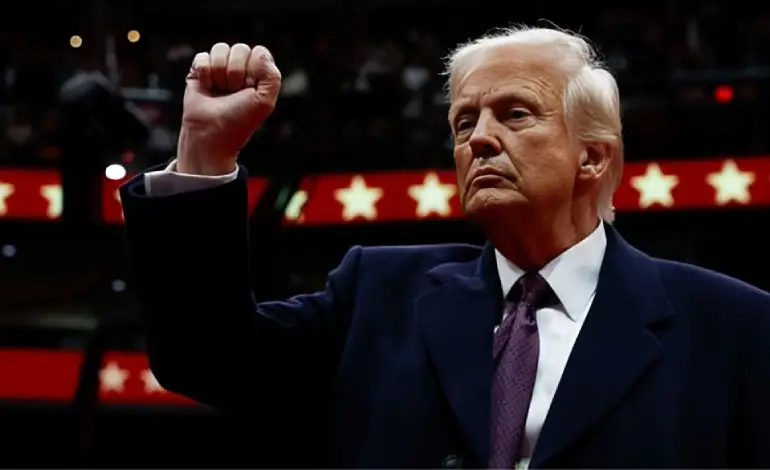In a decisive move to strengthen ties with the Trump administration, India has announced plans to bring back 18,000 of its citizens living in the United States without legal documentation. This action reflects a calculated strategy by the Indian government to support US immigration policies and maintain a strong partnership with Washington under President Donald Trump’s leadership.
The Context Behind the Decision
Since assuming office as the 47th President of the United States, Donald Trump has swiftly delivered on his promise to curb illegal immigration. In his initial days in office, Trump dismantled key mechanisms like the CBP One app, which facilitated legal entry for immigrants, and abolished birthright citizenship. These measures are part of a broader effort to address immigration concerns, a critical element of his administration’s agenda.
India’s response to these policies is a gesture of cooperation, aimed at aligning with US priorities and fostering goodwill. The decision to repatriate 18,000 undocumented Indian nationals comes as a diplomatic signal of India’s intent to support Trump’s stricter stance on immigration.
The Repatriation Plan in Focus
The 18,000 individuals identified for deportation have been living in the United States without proper documentation. This figure aligns with estimates provided by US Immigration and Customs Enforcement (ICE) from the previous year. Though the actual number of undocumented Indians in the US remains uncertain, this initiative demonstrates a collaborative approach between both nations in addressing the issue.
This step is expected to reassure the US administration of India’s commitment to resolving immigration challenges, a move that could positively influence negotiations in other key areas such as trade and visa agreements.
Why This Matters: Diplomatic and Economic Implications
India’s move to repatriate undocumented citizens is not just about compliance—it’s a strategic calculation with far-reaching implications. By taking proactive steps on immigration, India is positioning itself to negotiate better terms for legal immigration routes, particularly in programs like the H-1B visa. In 2023, Indians made up nearly 75% of the 386,000 H-1B visas issued, underscoring the program’s importance for Indian workers and the US tech sector.
Furthermore, this cooperation may ease trade tensions and help secure favorable agreements on migration with other global partners. Over the years, Prime Minister Narendra Modi’s government has been actively working on labor agreements with countries like Saudi Arabia, Taiwan, Israel, and Japan. These agreements not only enhance job opportunities abroad but also solidify India’s reputation as a responsible partner in global labor markets.
The Human Impact of Repatriation
For the 18,000 Indians facing repatriation, this decision represents a major turning point. Many have spent years building lives in the US, contributing to the economy, and becoming integral members of their communities. The prospect of leaving behind homes, jobs, and friendships is undoubtedly a daunting and emotional challenge.
The Indian government has acknowledged the complexities of this transition and assured support for those returning. Efforts will focus on helping these individuals reintegrate into Indian society by providing access to resources, skill development programs, and job opportunities. While the process will be difficult, India’s proactive stance aims to ease the burden for those affected.
Looking Ahead: Strengthening India-US Relations
By addressing immigration concerns, India is taking a step to deepen its partnership with the United States during a politically sensitive time. This move underscores India’s broader goal of fostering closer ties with global powers while safeguarding its economic and strategic interests.
At the same time, this development highlights the human cost of strict immigration policies. For the individuals being repatriated, the journey ahead will be challenging. For India, the focus will now shift to ensuring their successful reintegration and leveraging this diplomatic step to strengthen its position on the global stage.
In the evolving landscape of India-US relations, this decision could serve as a turning point—one that balances diplomatic priorities with the realities of migration and its profound human impact.










